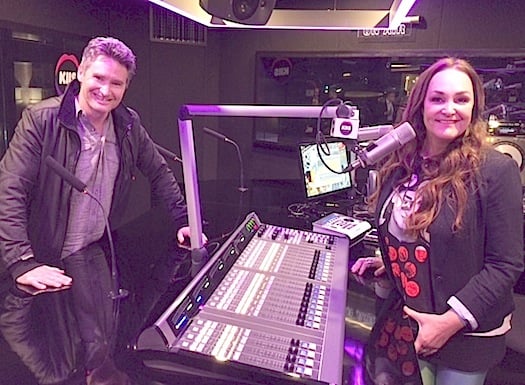The ACMA recently released its latest paper in a series called Investigation Concepts that explains how the media watchdog goes about investigating complaints and to arrive at its findings.
This, the third in the series is titled: Decency, Classification, and Harm and Offence – Where does one draw the line today?
Section Four of the paper deals with radio – which unlike movies and TV shows has no classification system. The ACMA has described the distinction between decency and indecency in these terms:
Generally accepted standards of decency is a broad concept and is not only defined by material that might be considered ‘indecent’. In determining whether a breach of Code 1.3 has occurred, the ACMA must reflect on whether material, which may not be to everyone’s taste, so offends generally accepted standards that it is inappropriate for broadcast.
There you have it. Clear as… Basically, it’s a touchy – feely thing where the watchdog must sniff out what it thinks is the prevailing public attitude on any given topic in any given situation.
To illustrate the nuances of what makes for ‘Decency and Offence,’ Section Four of the Paper uses a number of past investigations as case studies. Among them are all the usual suspects; the Kyle Sandilands Lie Detector segment (Investigation Report 2266) and his venomous “fat slag” attack (Investigation Report 2751) on the News Corp journalist who gave an adverse critique of his failed TV venture; Investigation Report 2848 in which FIVEaa’s Bob Francis described a journalist as ‘bitch’, ‘wanker’, ‘dickhead woman’ and ‘smart-arse.’ And the subject of Investigation Reports 2674 & 2717 which incorporate Alan Jones’ suggestion that Julia Gillard and Bob Brown be placed in a chaff bag and thrown out to sea.
There are quite a few others too, including John Laws and Triple M’s Saturday Football team as well as 2GB’s Chris Smith. and, of course, Investigation Report 2928 into the infamous Royal Prank Call.
But the Investigation that seemed to take up the lion’s share of Section Four of the ACMA paper was Report 1270 that dealt with a competition segment entitled Double Dilemma which was broadcast on Nova 100, Melbourne’s Breakfast show presented by Hughesy and Kate between 31 March and 8 May 2003.
Back then, the ACMA didn’t exist. Broadcast standards were administered by its forerunner, the Australian Broadcast Authority (ABA).
The ‘dilemma’ posed on 2 April 2003 presented the following scenario to phone-in contestant Amanda:
It’s 1942. You, your mother and your very sick four year old daughter are
ordered off the train in Auschwitz. The guard says to you, “Choose who gets sent to the gas chamber: your mother who is fighting fit, or your very sick daughter.”
What would you do – save your mother or save your daughter?
With $1,000 riding on her answer, the contestant, who was asked if she had a young child, baulked at the question four times before offering a decision.
Unsurprisingly, The Jewish Community Council of Victoria took issue with the segment and made an official complaint saying, “the ‘dilemma’ “was offensive, demeaning and trivialised the Holocaust.”
Now, 12 years later, we caught up with Hughesy and Kate to ask ‘what they were thinking’ to end up the subject of a Broadcast Authority Investigation. Kate, who struggled to recall the segment was appalled at the very thought that they could have been part of it. Ever the helpful co-host, Hughesy helped jog her memory.
To be fair, Kate was away for much of that period on maternity leave and although no one can exactly remember, was probably away the day of the incident.
So, how did the normally socially sensitive duo find themselves embroiled in this Double Dilemma? “It was Dan Bradley,” says Kate helpfully as she dobbs him in. “He was there then.”
“I don’t want to get anyone in trouble but it was the general manager’s idea.” Dave chimes in but admits, “It was a poor choice. I guess it’s something we did that we knew was a bit risky but it might get some attention.”
Kate insists, “I’m not trying to make excuses but as I recall, it wasn’t something that came internally from our show it was a station promotion that came from outside.
“That’s the downside of what you do when you work without a safety net and you try to constantly find ideas that haven’t been done before. Sometimes you make mistakes,” says Kate.
In the end, the ABA found against Nova 100 but noted that in its response, “Nova accepted that the dilemma caused offence to a section of the community and that it regretted the Auschwitz setting. The ABA proposes no further action against the licensee,” saying that it “notes and commends” the licensee’s prompt actions following receipt of the complaints. Nova issued an on-air apology on the day of the broadcast and then again during the breakfast show the following day.
Since then and to this day, Hughesy and Kate have never again caused the watchdog to snarl in their direction and have lived happily ever after in the land of KIIS.

Peter Saxon

